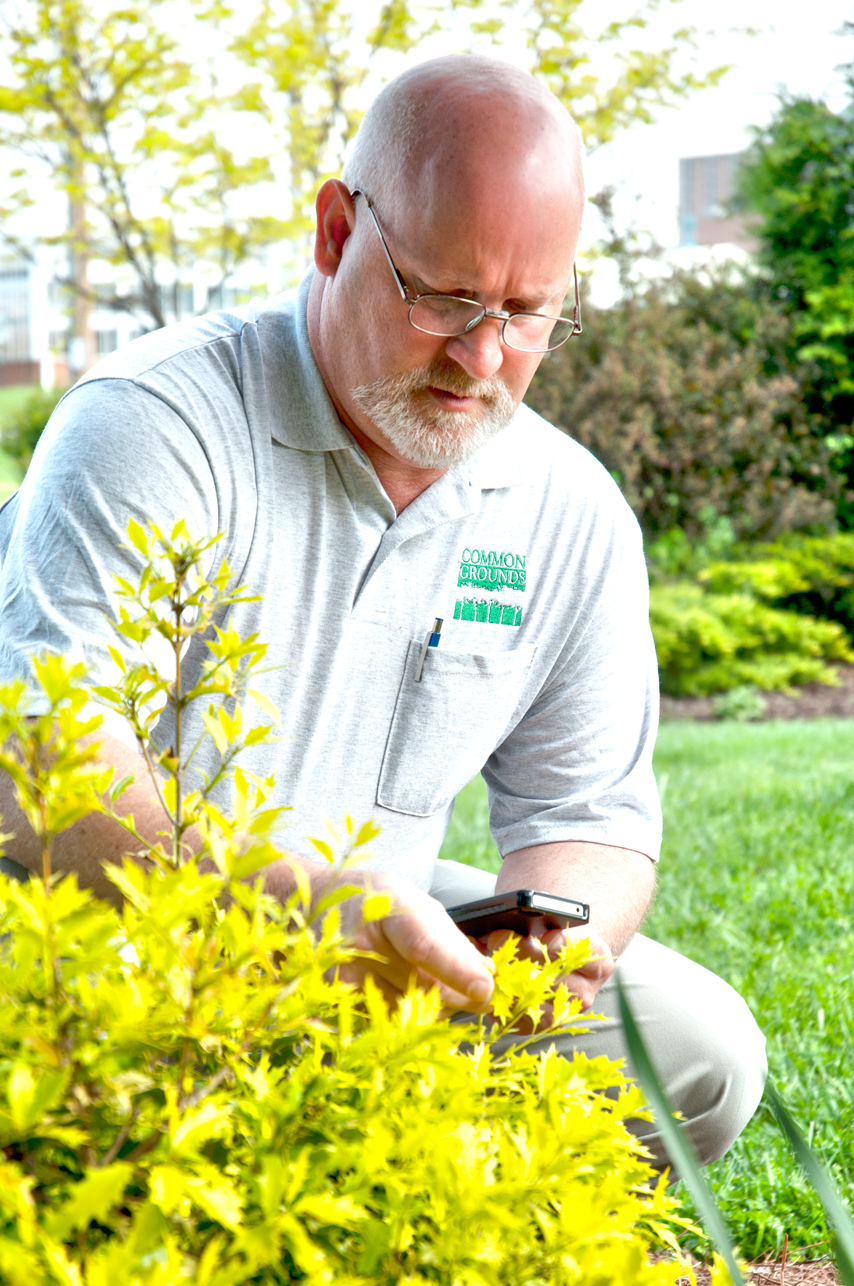Athens, Ga. – Green, or plant, industry professionals often find themselves in the field needing immediate access to the latest pest and plant disease information and plant care recommendations, especially when they are caught off guard by destructive pests emerging in their area.
Thanks to a collaborative effort of horticulturists, entomologists and plant pathologists at seven land-grant universities including the University of Georgia, there is now an app for that.
UGA College of Agricultural and Environmental Sciences faculty Kris Braman of the department of entomology, Matthew Chappell of the department of horticulture and Jean Williams-Woodward of the department of plant pathology worked closely to develop the application IPMPro with faculty from Clemson University, University of Kentucky, University of Tennessee, Virginia Tech, North Carolina State University and the University of Maryland.
The app gets its name from the term “integrated pest management,” better known as IPM, which is a science-based decision-making process that reduces pest and disease damage through biological, mechanical, cultural and chemical control methods in order to minimize economic and ecological impacts.
IPMPro, which was funded by the University of Tennessee, is the first of its kind in the U.S. and took 18 months to complete, Chappell said.
“It’s a one-stop shop for landscape professionals and homeowners who want to better coordinate their integrated pest management strategies,” Chappell said.
Designed by horticulture and pest management experts in cooperation with growers and landscapers, IPMPro was built for USDA Plant Hardiness Zones four through eight, which include 22 states from west of the Mississippi River, northeast to Pennsylvania and New Jersey and south to the Gulf Coast.
The goal of IPMPro is to streamline pest management decisions and employee training and to make complying with state pesticide recordkeeping regulations easy. The mobile app is available to purchase for iPhone, iPad and Android devices through Apple and Android marketplaces.
“IPMPro dramatically simplifies day-to-day plant care and pest control decision-making in the field,” Chappell said. “It provides a library of information in the convenience of an app and features real-time alerts to help professionals stay on top of emerging pests and timely plant care. And best of all, it fits in your pocket.”
Specifically, IPMPro:
• Sends location-specific, text-like alerts for time-sensitive pest issues and plant care.
• Provides a reference guide for pest identification, information on pest lifecycles and best practices for managing pest problems on woody plants.
• Offers a quick how-to guide with instructions and photos on the cultural practices used to manage pests.
• Offers quick access to research-supported recommendations on how to handle major diseases and insects.
• Provides a built-in pesticide recordkeeping log for mandated pesticide documentation.
• Gives nursery managers a heads up about seasonal pests and control practices in either calendar view or a chronological list.
• Assists in educating both new employees and experienced professionals.
“My first thought was, ‘Where have you been?’” said John Watson with Common Grounds Landscape Management in Knoxville, Tenn. “Most of the time we get so busy putting out fires we forget that the best thing we could do is prevent fires. This is just the kind of thing the industry needs. Now we have the best opportunity to head off pest issues that can wreak havoc for nursery and landscape professionals and for homeowners.”
Chappell and his colleagues are currently working on a homeowner version.
For more information on the application, see http://www.IPMProApp.com.


